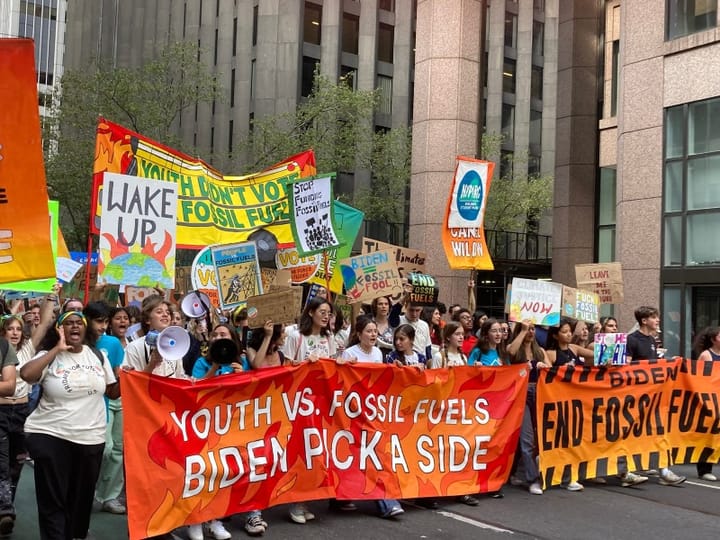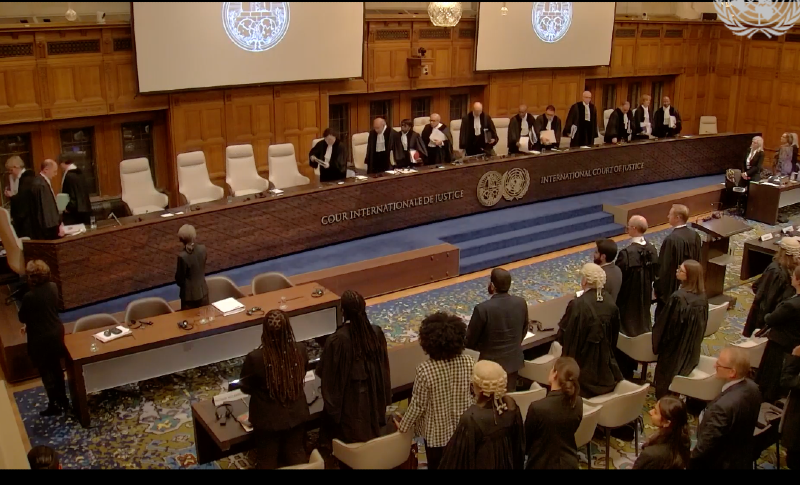Defying Dutch Court Order, Shell Doubles Down On Oil And Gas - Report

Shell continues to expand its oil and gas operations and approve development of new extraction projects in an apparent violation of a 2021 Dutch court ruling requiring the oil major to reduce CO2 emissions across its entire supply chain by 45 percent by 2030, a new report suggests. The report released today by Milieudefensie (Friends of the Earth Netherlands) and Oil Change International comes just two weeks before the scheduled court hearings on Shell’s appeal of the landmark verdict.
That ruling, issued on May 26, 2021 by the District Court in The Hague in a climate lawsuit brought by Milieudefensie, marked the first time in the world that a court had ordered a polluting company to take responsibility for the climate crisis by reducing emissions and aligning its business with the objectives of the Paris Agreement, which aims to limit global temperature rise to well below 2°C - preferably to 1.5°C. Expert reports and analyses, meanwhile, have confirmed that development of new oil and gas fields is incompatible with mitigation scenarios that hold dangerous warming to the 1.5°C limit. In its 2023 update to its Net Zero Roadmap report, the International Energy Agency states that “there is no need for investment in new coal, oil and natural gas” in the pathway that reduces emissions to net zero by 2050. The Intergovernmental Panel on Climate Change warns in its 2023 synthesis report that “projected CO2 emissions from existing fossil fuel infrastructure without additional abatement would exceed the remaining carbon budget for 1.5°C.” The head of the IEA, Fatih Birol, further warns in a 2023 report that the oil and gas industry faces “a moment of truth” in terms of its role in the clean energy transition, noting that this transition requires “much lower demand for oil and gas, which means scaling back oil and gas operations over time – not expanding them.”
Yet expanding its extractive operations is precisely what Shell is doing, according to the new report titled Shell vs. the Climate: Expanding oil and gas, fueling the climate crisis. The report finds that Shell has approved the development of at least 20 new oil and gas extraction assets since the May 2021 Dutch court verdict. That is double the number of approved new extraction projects reported in a previous briefing from Milieudefensie and OCI in September 2022. The 20 new projects in total could result in emissions of 753 million metric tons of cumulative CO2 pollution, which is more than fives times the emissions of the Netherlands in 2021, the report notes.
Shell approved six new oil and gas projects in 2023 alone. Any new project approvals are at odds with the Paris Agreement, Milieudefensie and OCI argue. “Any expansion of oil and gas goes against the court order for Shell to reduce its carbon dioxide emissions by 45% by 2030,” the organizations state in a press release.
The report also found that Shell has ownership in full or in part in over 800 oil and gas assets yet to be developed, which threaten an additional 5.3 billion metric tons of CO2 emissions (38 times the emissions of the Netherlands in 2021). The projected volume of undeveloped oil and gas in Shell’s portfolio has increased by 24 percent since the 2022 briefing. “Rather than writing off undeveloped oil and gas as incompatible with 1.5°C, Shell is actively seeking more of it,” the report explains.
Data on Shell’s assets, including production and investment plans, comes from Rystad Energy. The analysis from Milieudefensie and OCI is limited to the production and resulting emissions from oil and gas that Shell directly extracts, which makes up less than half of the total products that Shell sells. The vast majority of Shell’s supply chain emissions comes from the combustion of the company’s products (whether extracted directly by Shell or not), known as “Scope 3” emissions, and Shell is obligated to cut these emissions per the District Court’s mandate.

Rather than shrinking its oil and gas business or investing more in renewable energy or other alternative fuels, however, Shell is doubling down on its extractive operations after raking in record profits of around $40 billion in 2022. Shell is expected to invest more than $13 billion annually in upstream oil and gas extraction through 2030, with much of that projected to go towards developing new extraction assets, particularly in fossil gas and “liquefied natural gas” (LNG). Last year Shell announced it would not gradually decline oil production by 1-2% annually until 2030, as the company had previously promised. Shell has also cut spending on its “renewables and energy solutions” segment.
In its Statement of Defense on Appeal filed with the Dutch appeals court, Milieudefensie argues that Shell’s current corporate policy “still provides for very large-scale investments in oil and gas and will consequently lead to no or hardly any emissions reductions on the part of the Shell Group by 2030.” The implication is that Shell is therefore defying the reduction obligation that the District Court imposed on it. As Miliudefensie notes in its Statement: “Shell has chosen to largely ignore a judgment which was declared to be immediately enforceable.”
“The Court ordered Shell to reduce its total emissions by 45%. Since the vast majority of emissions caused by Shell’s business activities stem from the production, processing and sales of oil and gas, Shell must begin winding down these fossil fuel businesses across the board,” Milieudefensie’s Sumeyra Arslan, a co-author of the new report, told Climate in the Courts. “Serving as one of the important evidences in the appeal, this report shows what hides behind the greenwashing efforts of Shell,” she added. “The new strategy of Shell to focus more on fossil fuels and reduce its investments in renewables is a recipe for disaster and is not in line with the court's verdict.”
In an emailed statement responding to the report, Shell argued that it is “playing an important role in the energy transition by providing energy needed today while investing in low-carbon energy solutions of the future.”
“We expect LNG will play a critical role in the transition as it provides a secure supply of energy and will enable the world to make the most immediate progress in reducing emissions by replacing coal growth in industry,” a Shell spokesperson said in the statement. “Note that the court ruling in the climate case gives Shell broad discretion to determine how the emissions reduction should be achieved. Importantly, the court did not impose a prohibition on new oil and gas investments,” the Shell spokesperson added.
The Court of Appeal in The Hague will hear Shell’s appeal of the 2021 verdict in early April, with proceedings scheduled for April 2, 3, 4, and 12, 2024.


